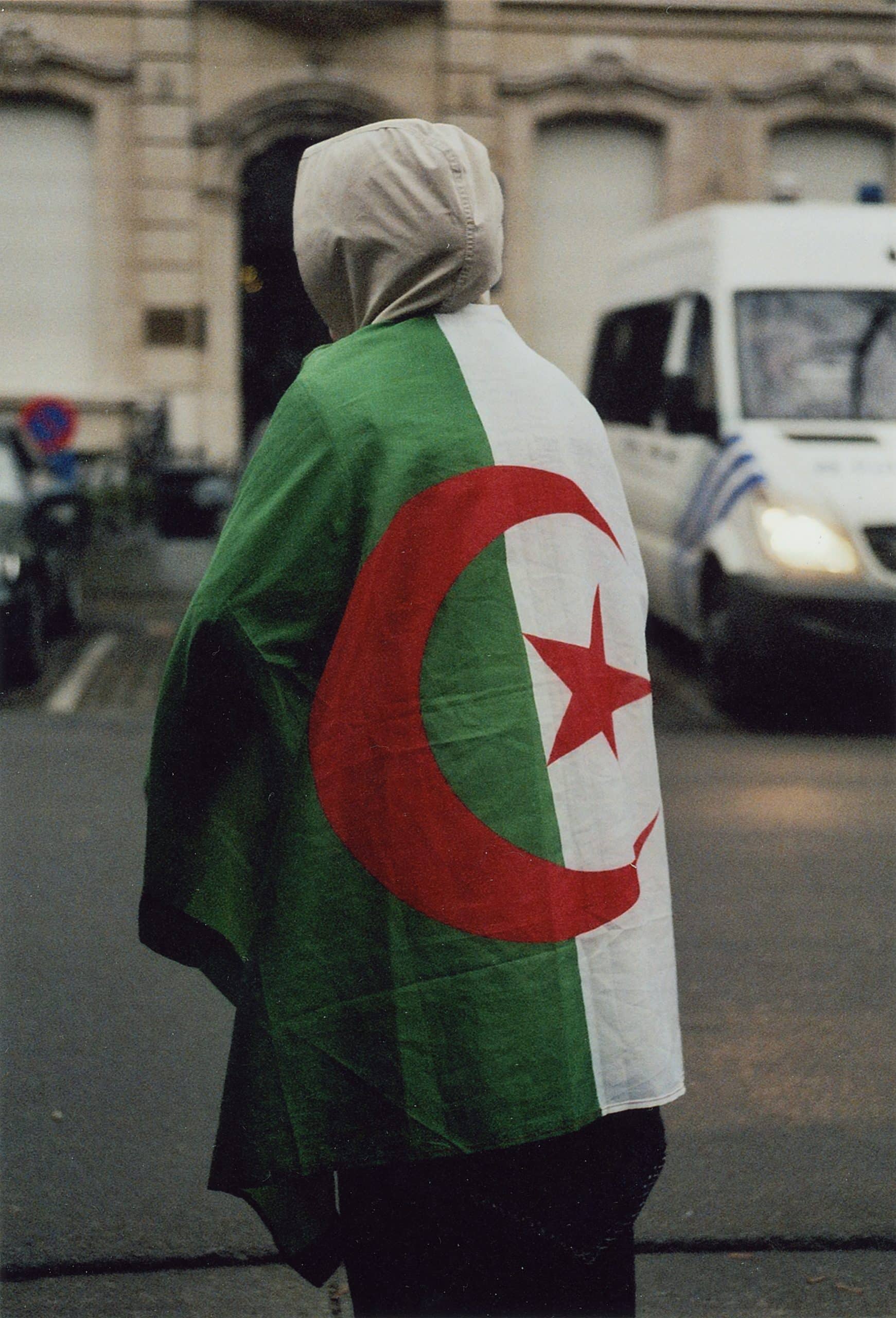Algerian protest in 2011: Flickr
The Algerian parliament approved a new media law that tightens control over the work of journalists and imposes new restrictions. While the government said the law is key to ensuring the free exercise of media activity under legal controls, Reporters Without Borders (RSF) said the law included “negative chapters” that constitute a violation of press freedom. The law prohibits the Algerian media from receiving any funding or material assistance from any “foreign entity”.
Communication Minister Mohamed Bouslimani said the law aims to “enshrine freedom and pluralism of the press” and “protect it from all forms of deviation”. The new law excludes dual nationals from the right to own or contribute to the ownership of a media outlet in Algeria.
Further control
The proposed law’s 55 articles have the merit of sweeping away many provisions concerning the status of journalists, media funding, and regulatory and ethics bodies, but there is much concern about a requirement for journalist working for foreign media to obtain prior accreditation, and about a new battery of penalties. Khaled Drareni stated: “By restricting the way journalists work and, in particular, penalising certain forms of media funding, this new legislation is ultimately content to give a legal character to a political desire to muzzle the press”. The new law is proposed without involvement of journalist.
Some articles of the bill are positive. It simplifies procedures for creating newspapers and magazines and it says the print and electronic regulator would be an “independent authority endowed with legal personality and administrative and financial autonomy”. Unlike the old law that required formal authorization from the Ministry of Communication to create a newspaper, the new one is much easier in that it says journalists can set up a media outlet by only making a statement. But other provisions are more controversial.
Controversial articles
It prohibits the Algerian media from receiving any “funding or direct and indirect material assistance from any foreign party” under penalty of “criminal sanctions provided for by law,” a fine of up to 2 million dinars (13,500 euros) and even the “confiscation of property involved in the offence.” Under another provision, insulting foreign heads of state and diplomats accredited in Algeria, would be punishable by a fine of 100,000 to 500,000 dinars (670 to 3,300 euros). On journalists’ sources, the bill says that “professional secrecy constitutes a right for the journalist in accordance with the legislation and regulations in force,” but it would force journalists to reveal their sources to the courts when asked. This violates the principle of the protection of sources. The ban on Algerians with a second nationality from owning or being shareholders in media outlets in Algeria is another source of concern. This provision which introduces an inequality between citizens that violates the constitution, was maintained despite criticism and although a member of the lower house proposed an amendment.
Crackdown on media
The new media law is seen by journalists as yet another move towards greater authoritarianism. One journalist said: “This new law simply gives a legal veneer to repressive practices that violate provisions in the constitution defending journalists and freedom of expression”. On April 2, journalist sentenced to five years in prison, of which two years were suspended on unfounded charges related to receiving funds for “political propaganda” and to “harm the security of the state”. On December 24, Ihsane El Kadi had published an analysis about the next presidential elections in Algeria in 2024 which was critical of the role of the Algerian army. “Ihsane El Kadi is just the latest journalist to be targeted by the Algerian authorities amid their unrelenting assault on independent media. The authorities are taking extreme steps to stifle critical voices, even though Algeria’s constitution protects the rights to freedom of expression and freedom of the press,” said Amna Guellali, Amnesty International’s Deputy Director for the Middle East and North Africa. Over the past two years, the Algerian authorities have prosecuted, arrested or detained at least 11 other journalists and media workers. It has to be seen what the effect of the new media law will have on the wrongful arrest of journalists.
Author: Manouk Bronzwaer

